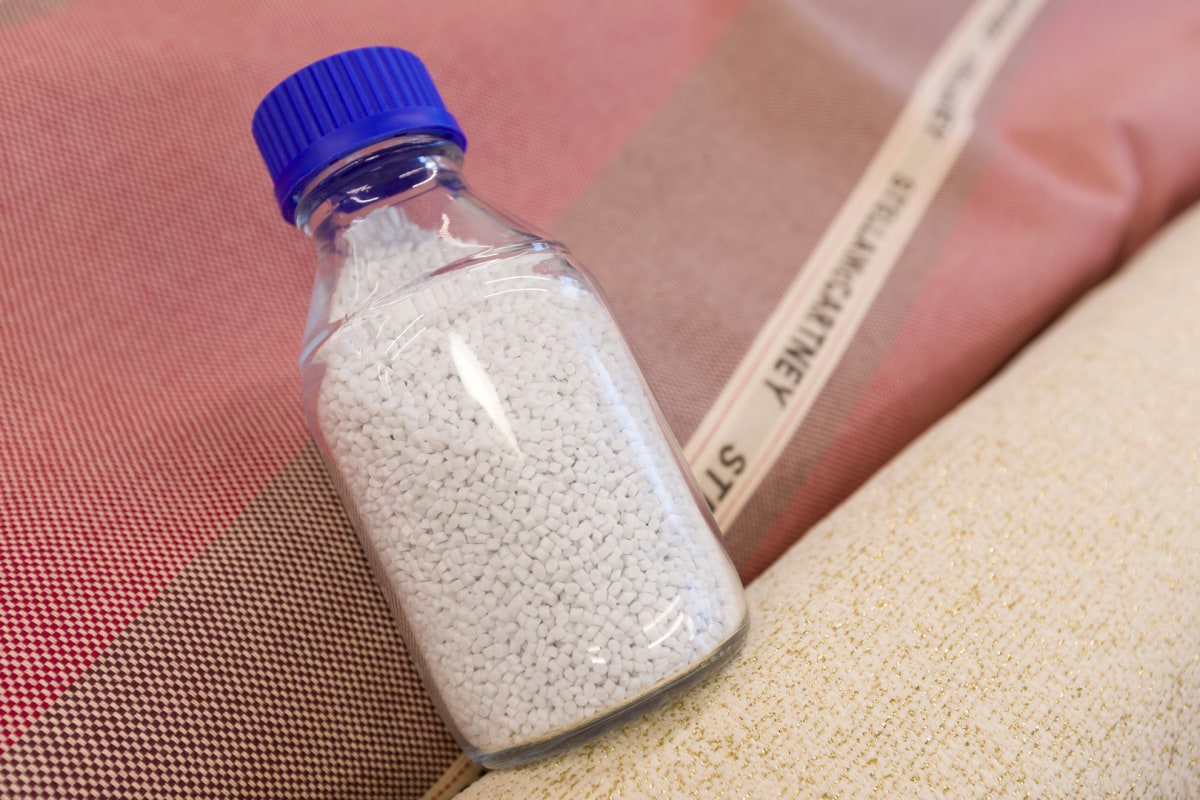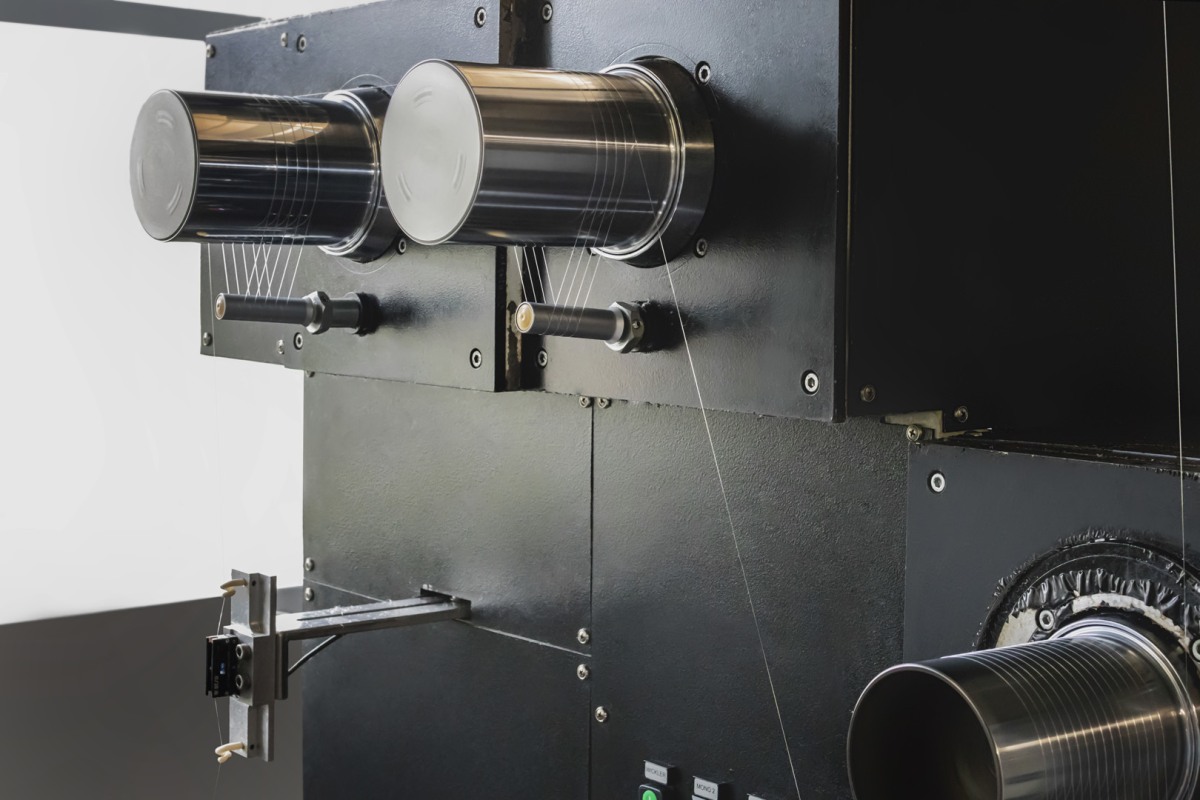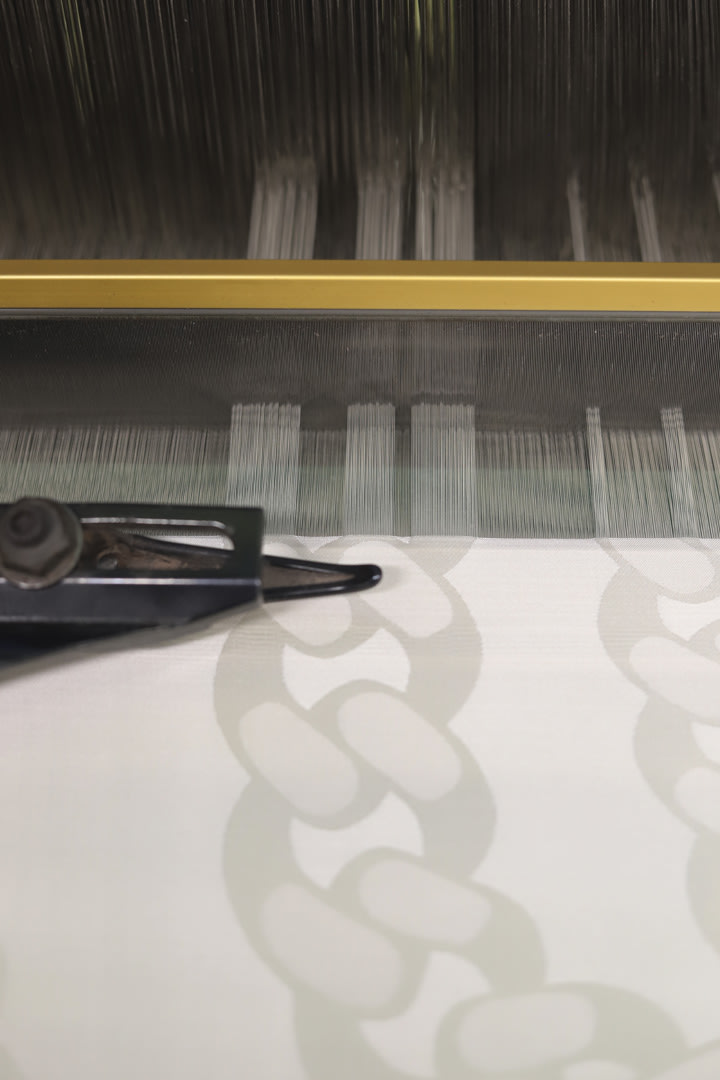[ad_1]
Like most parkas, a new design by Stella McCarney is made from polyester. But unlike any other parka, the polyester in this one didn’t come straight from petroleum. Instead, it was made out of rigid packaging waste and textile strappings used to secure freight containers. Unveiled at COP28 in Dubai on Friday, it’s the first garment produced with biological recycling, a process in which enzymes break down plastic waste.
The parka was made in partnership with Protein Evolution, a biological recycling company that says its process to break down plastics with enzymes produces polyester that is “indistinguishable” from virgin polyester made with oil. The garment is a proof of concept for the technology.
“Anybody who knows me knows that I hate waste,” McCartney said over email. “That’s what excites me so much about our collaboration with Protein Evolution.” Biological recycling could be a crucial step toward circularity for the fashion industry. Less than 1% of textile waste is recycled into new fibers, according to McKinsey.

Polyester industrial waste used to make a new Stella McCartney parka [Photo: courtesy Protein Evolution]
When it comes to plastic waste, the main type of recycling available today is mechanical recycling (though most plastic isn’t recycled at all). “The big problem with mechanical recycling is that you’re downgrading the material quality,” says Connor Lynn, cofounder and chief business officer at Protein Evolution. “You might take a water bottle and recycle it into textile-grade polyester, and that might go into a T-shirt, but that T-shirt then can’t be mechanically recycled again.”

“Good as new” plastic produced from waste textiles [Photo: courtesy Protein Evolution]
With biological recycling, though, Lynn says that material quality doesn’t change, and polyester fabrics (made from PET, a type of plastic also used in water bottles and clamshell packaging) can go through the process again, without weakening the fibers or needing to be mixed with virgin material.
Protein Evolution’s trademarked biological recycling process, which it calls Biopure, uses enzymes designed by artificial intelligence to break the PET or polyester down into its monomers (molecules that can bond together). Those monomers get turned into PET chips, which then can be spun into yarn and woven into fabric. These chips are the same as virgin polyester chips, so they fit right into existing manufacturing systems.

Protein Evolution worked with partners to spin the polyester chips into yarn. [Photo: courtesy Protein Evolution]
Using enzymes to break down plastic isn’t completely new. Some bacteria naturally evolved to eat plastic, and scientists have also created enzymes specifically to break down this waste. Protein Evolution says its AI process allows it to create enzymes with higher rates of activity, or that are more robust under certain conditions. The expectation is that it could eventually produce enzymes that work for nylon or polyurethane.
Chemical recycling also breaks PET down to its monomers, but if contaminants like non-PET plastics get mixed in with what’s getting recycled, they could affect the quality of the end product. It’s also a high-energy process requiring immense temperatures and pressure that can release toxic chemicals and emissions; the Protein Evolution process doesn’t need high energy or temperatures, and also produces fewer emissions. The company says that compared to virgin polyester, its process produces about 70% fewer CO2 emissions.

[Photo: courtesy Protein Evolution]
Stella McCartney’s Collab SOS, a climate VC fund in partnership with the firm Collaborative Fund, led Protein Evolution’s $20 million funding round in 2022. The designer’s brand has long focused on sustainability in the fashion industry, and has even worked with next-generation materials like mushroom leather.
The partnership between Stella McCartney and Protein Evolution involved a year of R&D, during which deadstock fabric from previous Stella McCartney collections was used as a feedstock to test and prove the biological recycling process. The final parka was made with packaging waste and polyester strappings because the brand doesn’t have much fabric waste, Lynn says, and because of the extent of industrial strapping waste.
“These wrappings are really hard to break down. They can be a couple of inches thick, and grinding them up can be pretty difficult,” Lynn says. “The mechanical recycling process would basically just be shredding these down to fibers that couldn’t be used again today. It’s a real end-of-life material.” (The time that biological recycling takes varies, in part based on how complex the material is; Protein Evolution is working with the U.S. Department of Energy’s Agile BioFoundry to design enzymes that can break down polyester in just hours).
The parka is on display at COP28, the U.N.’s 2023 climate conference, through December 12, alongside a scaled-down version of a Protein Evolution reactor, to demonstrate the biological recycling process. McCartney couldn’t share further plans for biologically recycled polyester clothing, but says she hopes “that brands will see this as an opportunity to change their ways of working and become more circular.” Protein Evolution’s next step is to build a demonstration facility, which should begin in 2024 and will have the capacity to recycle 1,000 tons of plastic waste per year.
[ad_2]
Source link

